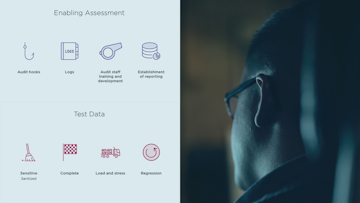
Security assessment is an important but often misunderstood integral part of an information security management program. Many tests and audits fail to provide value or adequate insight into security risk and controls. In this course, Security Control Assessment, you will learn the various types of security assessments that should be conducted. First, you will explore the topic of designing an assessment strategy. Next, you will discover the skills and approaches to use to conduct effective testing. Finally, you will gain an understanding of security audits, log monitoring, and reporting results to management. When you are finished...
Read more
Good to know
Save this course
Activities
Career center
Cybersecurity Engineer
Security Architect
Chief Information Security Officer (CISO)
Risk Manager
Information Security Manager
Security Engineer
Information Security Analyst
Security Auditor
Security Consultant
IT Manager
Database Administrator
Network Administrator
Systems Administrator
Security Analyst
Forensic Analyst
Reading list
Share
Similar courses
OpenCourser helps millions of learners each year. People visit us to learn workspace skills, ace their exams, and nurture their curiosity.
Our extensive catalog contains over 50,000 courses and twice as many books. Browse by search, by topic, or even by career interests. We'll match you to the right resources quickly.
Find this site helpful? Tell a friend about us.
We're supported by our community of learners. When you purchase or subscribe to courses and programs or purchase books, we may earn a commission from our partners.
Your purchases help us maintain our catalog and keep our servers humming without ads.
Thank you for supporting OpenCourser.


